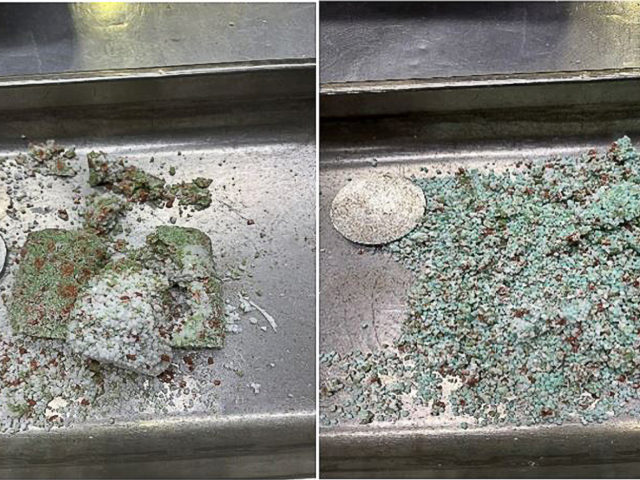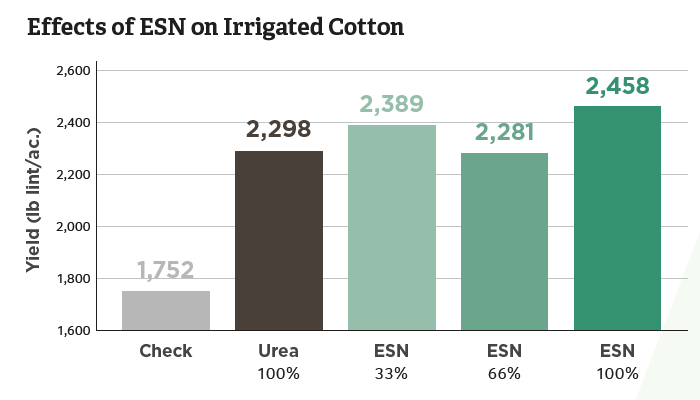
Reduce Clumping in Dry Fertilizer Blends With ESN
Humidity and warm temperatures can cause fertilizer blends to take on moisture over …
A study conducted by Bobby Golden, Mississippi State University, Stoneville, MS. 90lbs nitrogen applied at sidedress
A Mississippi study demonstrates how ESN can increase yields in irrigated cotton production. ESN protects nitrogen (N) from loss inside its unique protective coating and supplies N to the crop when it is needed. The result is increased cotton yields and improved N-use efficiency.
Cotton plants need N throughout the growing season. Most N uptake by a cotton plant takes place in the period of about 40-80 days after planting and continues up to 140 days after planting. ESN may be used to meet this long season demand.
In this Mississippi study, ESN applied to the surface of the soil at lay-by yielded higher than or equal to urea.

| Attachment | Size |
|---|---|
| Effects of ESN on Irrigated Cotton Yields in Mississippi | 567.69 kb |

Humidity and warm temperatures can cause fertilizer blends to take on moisture over …

Recent research in Idaho identified the effectiveness of ESN as the nitrogen source …

For an in-depth discussion on the various nitrogen loss mechanisms and how to …